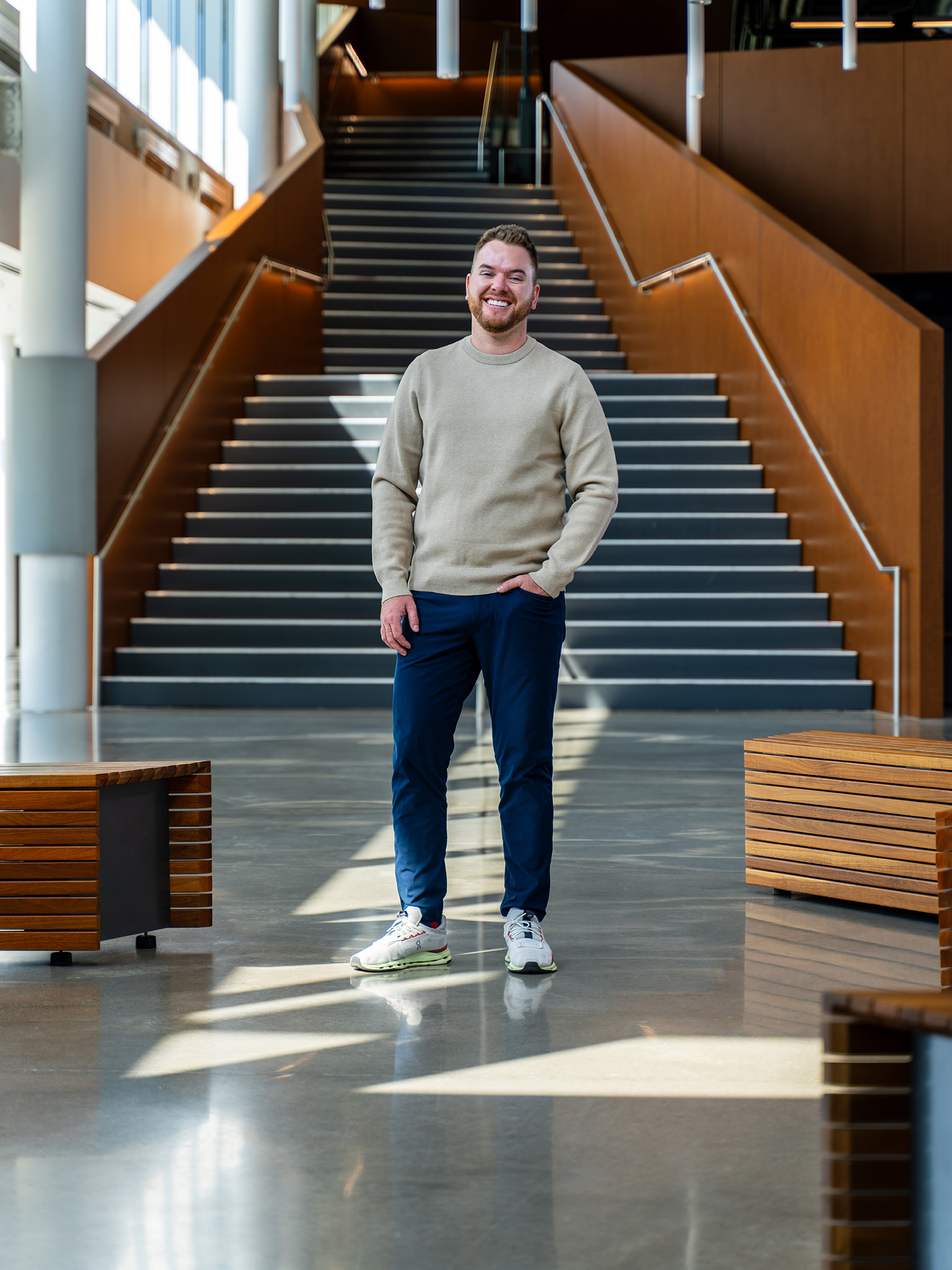View
Path Forward
by deirdre Kelly
photography by Kyle Finbow
York University is breaking new ground by placing Indigenous knowledge at the forefront of addressing climate change and disruptive technologies. Indigenous Peoples have cultivated this holistic understanding over millennia of close relationships with the land – an approach York is now harnessing to inform sustainable solutions.
Last spring, Anishinaabe scholar Deborah McGregor (MES ’92), an expert on incorporating Indigenous knowledge into environmental governance, and Graeme Reed, a former York post-doctoral fellow now with the Assembly of First Nations, co-led the development of the 500-page “For Our Future: Indigenous Resilience” report. The comprehensive national study, authored by an Indigenous team, aims to ensure Indigenous worldviews and experiences directly inform climate policies and action plans. The findings emphasize the importance of Indigenous self-determination and incorporating Indigenous knowledge systems into climate change decision-making for an effective and sustainable response.

“This report represents a significant shift in how Indigenous knowledge systems can directly inform climate policy,” says McGregor, who holds the Canada Research Chair in Indigenous Environmental Justice at Osgoode Hall Law School. “Indigenous Peoples’ rights and knowledge are critical to developing equitable and effective climate solutions.”
York’s Indigenous knowledge initiatives extend far beyond climate solutions. This fall, the University unveils a groundbreaking space – Canada’s first Indigenous-led technology research hub on its Keele Campus. Part of the $318.4-million Connected Minds partnership with Queen’s University, the new hub centres Indigenous philosophies and knowledge systems. Its mission? Mitigating risks that technological disruptions pose to vulnerable populations, while promoting social equity and justice through an Indigenous worldview.
“This continues to demonstrate how our researchers are making positive impacts not only at the policy level, but also through community-led and driven research,” says Mi’kmaw scholar Sean Hillier (BA ’10, MA ’11), director of York’s Centre for Indigenous Knowledges and Languages and an associate director of Connected Minds.
While the new tech hub aims to uphold the UN Sustainable Development Goals, a key focus is examining the societal impacts of human-machine integration through an equity lens.
“Our inclusive, interdisciplinary approach,” says Connected Minds vice-director Pina D’Agostino (BA ’96, LLB ’99), “aligns with the UN Sustainable Development Goals, making York the perfect place to anticipate how humans and machines will connect in an equitable society.” ■